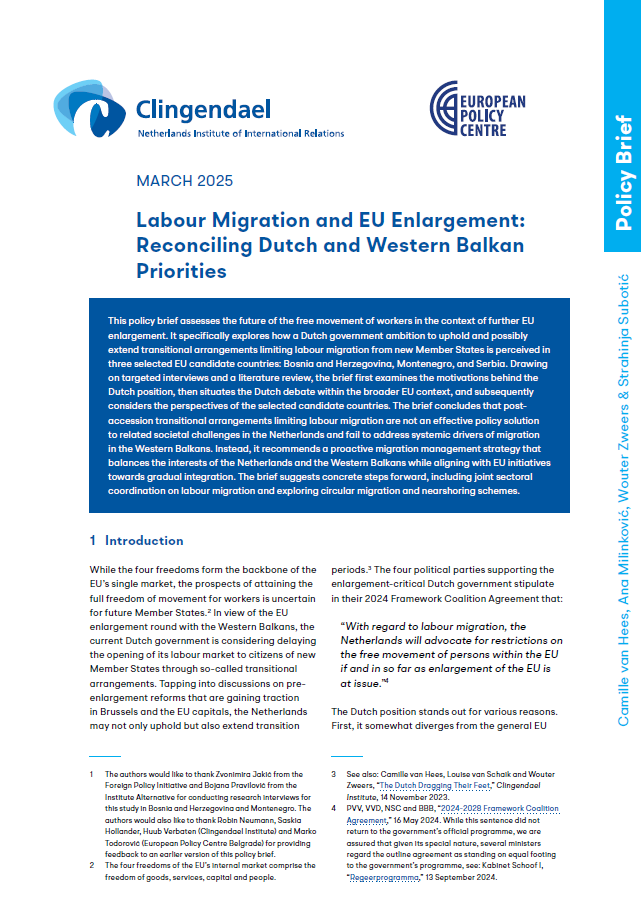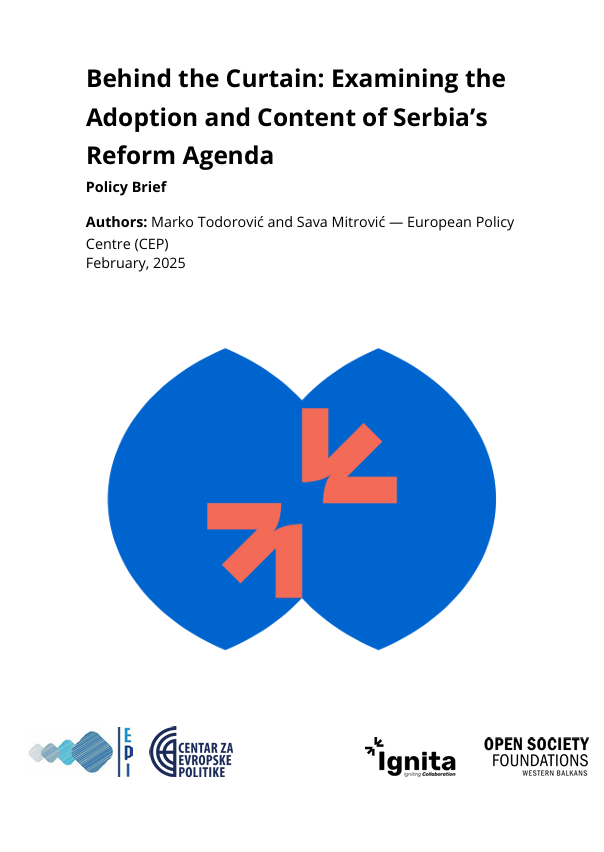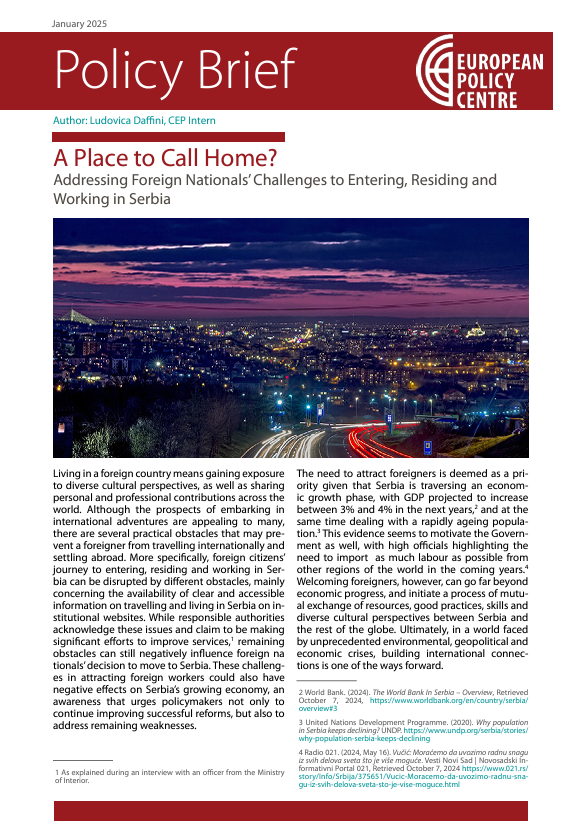Headquarters: Svetog Nauma 7, 11000
Office address: Đorđa Vajferta 13, 11000
Phone:: +381 11 4529 323
The European Commission’s annual reports on the state of play of reforms within negotiating chapters, applicable to all (potential) candidates, play a pivotal role in evaluating their commitment to EU integration. Moreover, these reports serve as the basis for the EU Council’s decisions to open clusters or close chapters during the negotiation process.
Yet, in practice, there is an increasingly evident rift between these two EU institutions. It has now become a customary practice for the Council to diverge from the Commission’s opinions in cases where it positively assesses a country’s progress in reforms and recommends advancing its accession process. Although, at times, the Council’s lack of affirmative decisions can be attributed to the unilateral misuse of the process by a single member state, member states continue to demonstrate a notable level of mistrust when it comes to the Commission’s approach to reform monitoring and assessment. This is compounded by the fear that the Commission’s reports tend to paint a brighter picture than what is observed through the individual and separate scoping missions of member states. Similarly, civil society organisations (CSOs) from the region have also actively and repeatedly called for the Commission’s findings to become consistent and evidence-based, in order to render the annual reports more objective, accurate, impartial, verifiable, and comparable. It is, therefore, crucial to improve the Commission’s approach to tracking reforms and ensure greater credibility of its reports. In an effort to provide clarity, the Commission has traditionally labelled the level of preparedness for each assessed chapter, ranging from “early stage of preparation” up to the “well advanced” level.
Yet, this paper highlights the Commission’s reluctance to apply such categorisation when evaluating the functioning of democratic institutions (FoDI). Addressing this issue is of high importance, particularly considering that the 2020 Revised enlargement methodology has identified the FoDI as one of the key sub-areas of the Fundamentals (Cluster 1).4 As the progress in the FoDI can determine the overall pace of a candidate’s negotiation process, in conjunction with other essential areas covered by chapters 23 and 24, the continuation of the current practice of inadequate assessment in this sub-area risks further undermining the credibility of the Commission’s country reports. Furthermore, it diminishes the likelihood of the Council taking appropriate actions to advance the candidates’ accession based on assessed progress.
Therefore, this paper concentrates on uncovering the key omissions or deficiencies of the Commission’s assessment of the functioning of democratic institutions. It achieves this by conducting a comparative analysis of reports for all Western Balkan (WB) countries. The subsequent conclusion drawn is that varying degrees of (in)consistency exist among the reports, moderately impeding their comparability and effectiveness. As a result, this paper offers recommendations with the aim of further improving the overall consistency levels in the Commission’s reports.


